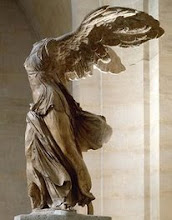Bueno, pues perdimos el "22" pero nos salió la oportunidad de alquilar (esta vez con papeles firmados) el antiguo bar "Mañana" y el restaurante "Crisis" que, a decir verdad fue un negocio redondo de todo el año porque el bar funcionaba en invierno y el restaurante en verano. Yo tambien le di el nombre "La Familia" porque la gente nos llamaba así ya que siempre ibamos juntos y nos conocían como "la familia". En invierno yo era la camarera y me encantaba atender a nuestros clientes, algunos eran millonarios, otros de clase media pero los que me llenaban a nivel espiritual eran los colgados que se quedaban toda la noche sentados, bebiendo agua, y que yo sentía que les dabamos un calor humano que necesitaban. Por ejemplo, recuerdo el hippy italiano que venía y siempre pedía un vaso de vino. Un dia, uno de nuestros clientes, se encaró con el y quiso entablar una pelea (en aquellos años, en invierno, como no había muchas mujeres, los hombres estaban muy salidos y peleones...) Le dije al italiano: "Per favore, questa e mia casa, no voglio peleas" y el italiano se levantó y se fue, así evitando una trifulca. Unos dias despues, el italiano apareció, yo le saqué un vaso de vino y le dije: "Grazie, Vd. fué un caballero y le invito al vino" y el me contestó: "Lo hice per lei signora" ("lo hice por Vd. señora") lo cual me llenó de orgullo y satisfacción. Otro dia que me retrasé en llegar al bar, un grupo de argentinos clientes asiduos (porque atraíamos a todo tipo de gente, gays, alemanes, franceses, italianos, ingleses, americanos, argentinos, lesbianas, y lo que se terciara) me dijeron: "Ya decíamos que faltaba la luz en este boliche!" lo cual tambien me halagó mucho. Luego en verano con el restaurante yo era la cajera, me sentaba detrás de una mesa con cintas de goma sujetando las comandas. Mis hijastros eran los camareros y Fernando el cocinero. Tuvimos muchísimo éxito. Venía todo el mundo. Todos los famosos que venían o vivían en Ibiza en la época. Cuando lo dejamos lo traspasamos a unos vascos que montaron "El Aquelarre" (aún sigue).
When we lost the "22" we leased (this time with signed papers) the old Bar "Mañana" and the "Crisis" Restaurant which was a year-round business because the bar worked in the winter and
the restaurant in the summer. We called it "La Familia" because in those years everyone knew us as the "family". In the bar, in the winter, I was the waitress. I loved my job serving everyone, millionaires, middle-class clients; but those that filled me the most at a spiritual level were the hung-up that would sit there all night drinking water but who I felt needed the affectionate ambiance that we provided. For example, I remember an Italian hippy who came every evening and always asked for a glass of wine. One evening one of our clients was very provocative with the Italian and wanted to provoke a fight (in those years due to the lack of women in the winter, men were very aggressive) I asked the Italian: "Please, this is my house I don't want a fight" and the Italian, very graciously, left, that way avoiding the fight. A few days later he appeared and I brought out a glass of wine (on the house) and said to him: "Thank you, you were a gentleman the other day" and he replied: "I did it because of you madam" which filled me with great pride and satisfaction. Another day that I was late coming to the bar a group of Argentinians (we attracted everyone, by the way, gays, lesbians, Argentinians, French, Germans, Italians, English, Americans etc.) when I appeared, said to me: "Ah, no wonder we thought the light was missing from this place" which was also very sweet of them to say that. In the summer, in the restaurant, I was the cashier. Sitting behind a table with a rubber band holding on to the kitchen orders, my step-children were the waiters and Fernando was the cook. We had a great success. Everyone that was famous that lived or spent the summer came. Afterwards, we leased it to a Basque that called it "El Aquelarre". It still exists.


























